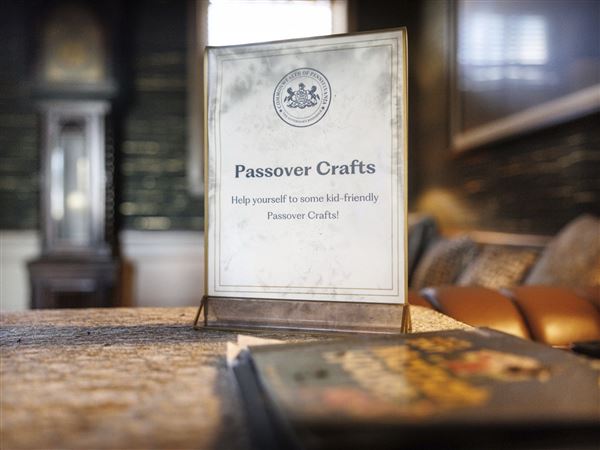A novel set in 1950s Morocco featuring a central character with a mystical birthmark suggesting a connection to the djinn of legend sounds like historical fantasy or magical realism. However, “The Black Crescent” by Jane Johnson is both historical and real; the fantasy and magic are present only in the vivid details surrounding its protagonist Hamou Badi.
This story is based, in large part, on the lived experience of Johnson’s husband, Abdellatif, down to the titular smirches on his hands, known as the “mark of the zouhry,” a legendary child of a human and a djinn with magic powers. The intimate connection to her subject is evident in her prose, from its rich specificity to the love she imbues in the setting and characters.
Complex, nuanced themes swirl through a narrative encompassing religion, colonialism, and the way in which institutional systems fail those they are meant to support. The plot can meander in places and confound in others.
Yet, the novel does what all fiction is meant to do, create a profound, authentic world that feels lived-in and real to the reader. In her author’s note, Johnson discusses her writing process, beginning with her fascination with Casablanca (the city, not the beloved film) and the experiences Abdel shared with her, now captured on the page.
Johnson is the longtime editor of George R.R. Martin, author of the series “A Song of Ice and Fire” (among many other works). Any reader who has pored over his descriptions of some lord’s breakfast spanning multiple pages will feel familiar with the exacting way she assembles the particular time and space Hamou occupies.
Rather than paragraphs about blood sausages or dense breads, Johnson meticulously paints a precise picture of a city alive with countless more characters than are named in the text. Even though Johnson spent months in Morocco, the small village of Tizaine and the metropolitan Casablanca she writes about could only come from years of living in these places.
Admiration and joy
Hamou is not Abdellatif, but Johnson clearly sees a lot of her husband in the character. Even when his choices may frustrate readers, the hand of the author captures him with admiration and joy. Personally, I did not love him as much as Johnson seems to.
As a victim of her success in creating a believable world, I found myself drawn to the events and characters just off the page. Her locations were so evocative, I wished I could walk away from the novel’s action and get lost in the side streets, markets, and other areas like it was virtual reality and not a book.
There are many moments of joy and beauty in this story, but equally there is tragedy, fear, and suffering. Because Johnson is so close to her subject, these feelings are transmitted like emotional telepathy into the heart of the reader.
At times Hamou’s desperation is almost too much to bear. The injustices visited upon him and that he witnessed resonated so acutely, there were times I set the book aside, often to research how much was historical fact and how much came from the author’s imagination.
Other times, I’d just have to step away from the novel to give myself the respite Hamou rarely finds. Though, each time I did, his world for all its beauty and its horrors stayed with me just the same.
Some stories grab readers by their chin, like a cross grandmother, and drag them from page to page with a need to discover what happens next. “The Black Crescent” is not such a novel. This is a story that’s worth spending time with, immersed in the sights, smells, and sounds of the environments that exist on its pages.
The book surprises readers, not with plot twists, shocking reveals, or other such literary devices. Rather, the sensory experiences and the emotional authenticity of its characters linger with readers until we are drawn back into this vibrant and compelling world.
Joshua M. Patton is a father, veteran and senior writer for Comic Book Resources and the author of the comics-inspired short story collection “Tales of Adventure & Fantasy: Book 1.”
First Published: March 4, 2024, 10:30 a.m.

















